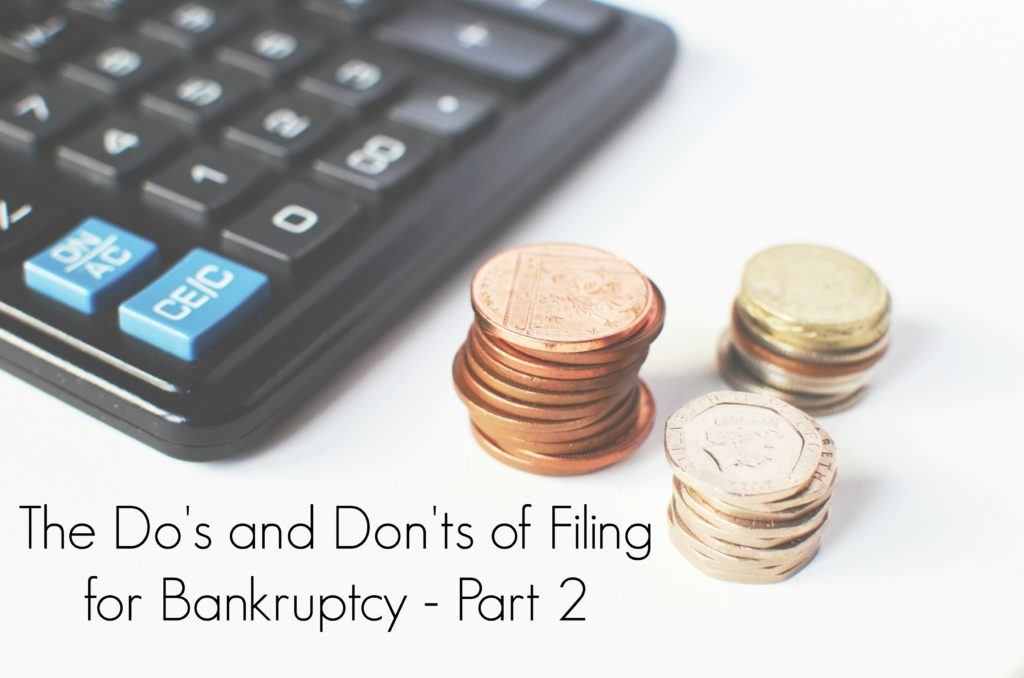Earlier this month we published part one of a two-part blog and focused on what not to do when filing for bankruptcy. You can read that blog here. The second part of the blog focuses on what you need to do when filing for bankruptcy.
Here is a list of what you should do when you file for bankruptcy:
- Compile your financial statements. This includes tax returns with W-2s for the past three years, six months of bank statements, six months of pay stubs, and your most recent credit card statements.
- Create a file folder for all documents about your bankruptcy. This includes the fee agreement, my letters to you, copies of all court documents and the discharge that is mailed to you at the conclusion of your case. You should retain this file for at least 10 years, because your bankruptcy remains on your credit report for 10 years. It is likely that you may need these documents in the future.
- Pay Loans on Time. Be sure to pay any loans if you wish to keep the collateral. If you have a mortgage or car payment, and you wish to keep the house or the car, you must remain current on the payments.
- Discontinue automatic payments on debts that you do not intend to keep.
- Close all bank, credit union, or financial institution accounts. If you owe money on a credit card, loan, or other debt to that lending institution, then cancel any bank accounts that you maintain there. There is a chance you could lose any money in your account when your bankruptcy case is filed, and future deposits may be taken. Wait for all checks to clear before closing your account. Reroute the automatic deposit of your paychecks to your new account.
- Keep your house and car insurance coverage up to date.
- Let me know the following information.
- A list of debts owed to friends and relatives by name, address, and amounts due.
- List any family members, friends, or acquaintances who you have paid any money to in the past year by name, address, amount paid and date paid.
- If you expect to receive an inheritance.
- If you owe alimony or child support to anyone, the amount owed, and whether you are current on the payments or in arrears.
- If you are required to transfer any property to anyone pursuant to a divorce settlement or if you transferred any property to anyone pursuant to a divorce settlement in the last 4 years.
- If you are entitled to receive any property under a divorce settlement.
One of the first things that you should do when you plan on filing for bankruptcy in NJ is to meet with an experienced attorney. Schedule an appointment today and I will help you navigate the bankruptcy process. There is life after bankruptcy and it starts here.

